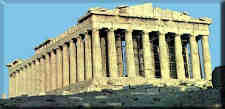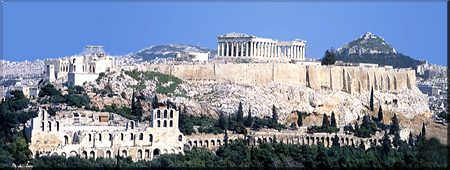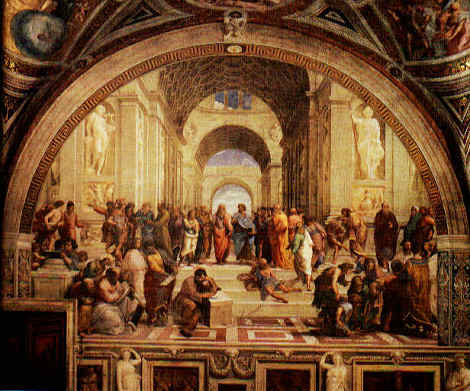Athens was a
polis on the southeastern part of the Greek
mainland. The Athenian people valued reading, writing,
and music, which the Spartans scorned. Unlike Sparta, Athens allowed the
people born in their polis political freedom.
the Spartans scorned. Unlike Sparta, Athens allowed the
people born in their polis political freedom.
The people of Athens
created a democracy, or a government ruled by the people
instead of a king. Every adult male born in Athens became
a citizen and a member of the assembly. The assembly
voted on how the polis was governed. To ensure equal
opportunity for every citizen, Athens chose it's leaders
by lot rather than holding elections. The elected
officials served for one year. At the end of the year,
the leaders were calledbefore the assembly to account for
their work.

Not everyone
participated in Athenian democracy. Athens encouraged
outsiders to move to their polis, but did not allow them
to vote. Women could own land, but could not actively
participate in the assembly. The members of the assembly
accounted for only about one-sixteenth of the total
population of Athens. About one in four people were
slaves. The slaves did most of the work in the
polis. This made it possible for the members of
the assembly to spend more time on public affairs.
Athenian democracy was
limited, but it gave some people the opportunity to make
decisions about how they were governed. Participation in
government by common people was a new idea that later
became a model for other governments.



